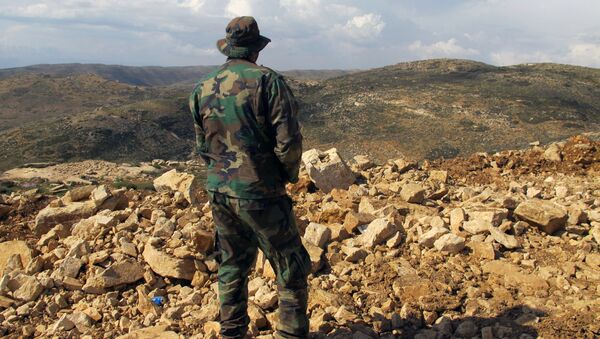When asked how the United States will remove Iranian troops from Syria, Satterfield said, "Senator, it's a combination of measures. First and foremost it is aggressive sanctioning and measures undertaken by the US and our partners to deny the physical tools, the ability to move assets and the ability to finance Iran’s activities."
The US will remain present in Syria after the military conflict ends in order to ensure stability in the region and assist its allies, he said.
"We are going to stay for several reasons: stabilization and assistance in the vital north and north-east; [and] protection of our allies the Syrian Democratic Forces who have fought so valiantly against ISIS [Daesh] in the north-east."
Satterfield explained that working to help transform political structures to produce a model for the rest of Syria as well as countering Iran’s efforts to enhance its presence in the region are some of the other reasons for the US decision to remain on the ground in Syria.
READ MORE: US Maintaining Presence in Syria Heightens Risk of Clashes — Ex-Senate Adviser
Responding to a question of how to avoid the prospect of a "never-ending war," Satterfield said the conditions for recalling US troops to will be determined on the set of conditions and the broader assessment of the situation in Syria.
There are no "hard dates" set for when US troops may return back to the United States, Satterfield added.
Iran, one if the state-guarantors of the Syrian ceasefire along with Russia and Turkey, has admitted that it was sending military advisors to Syria in order to help the legitimate government's fight against terrorism, however, denied allegations of plans to set a military base in the country.
'Assad Must Go'
According to Satterfield, Washington and its allies will not help the Syrian government with reconstruction if President Bashar Assad is in power.
"The international community’s committed itself not to provide that reconstruction assistance until those goals — constitutional reform, UN-supervised elections — are realized," he said.
READ MORE: US Has No Choice But Accept Assad Rule, Regime Change Strategy Dead — Analysts
He also said that the US will not support a Syrian peace conference in the Russian resort city of Sochi if the participants seek to create a separate track to the United Nations’ Geneva peace process.
"Our position with respect to Russia is we cannot and will not legitimize a Russian alternate political process which is independent of and not supported and endorsed by the [UN] Secretary General," Satterfield said when asked about the upcoming talks in Sochi.
Satterfield emphasized that neither the UN chief nor the United States would accept a peace process "like Astana" that creates a second track that is "nominally part of Geneva but in practice under Russian control and direction and only informing Geneva and the UN as outcomes are derived."
Amid the course of the Syrian civil war that erupted in 2011, US and its regional and European allies have been calling for Assad's removal from power, while Russia and Iran insisted that it is up to the Syrians to decide their own future.


